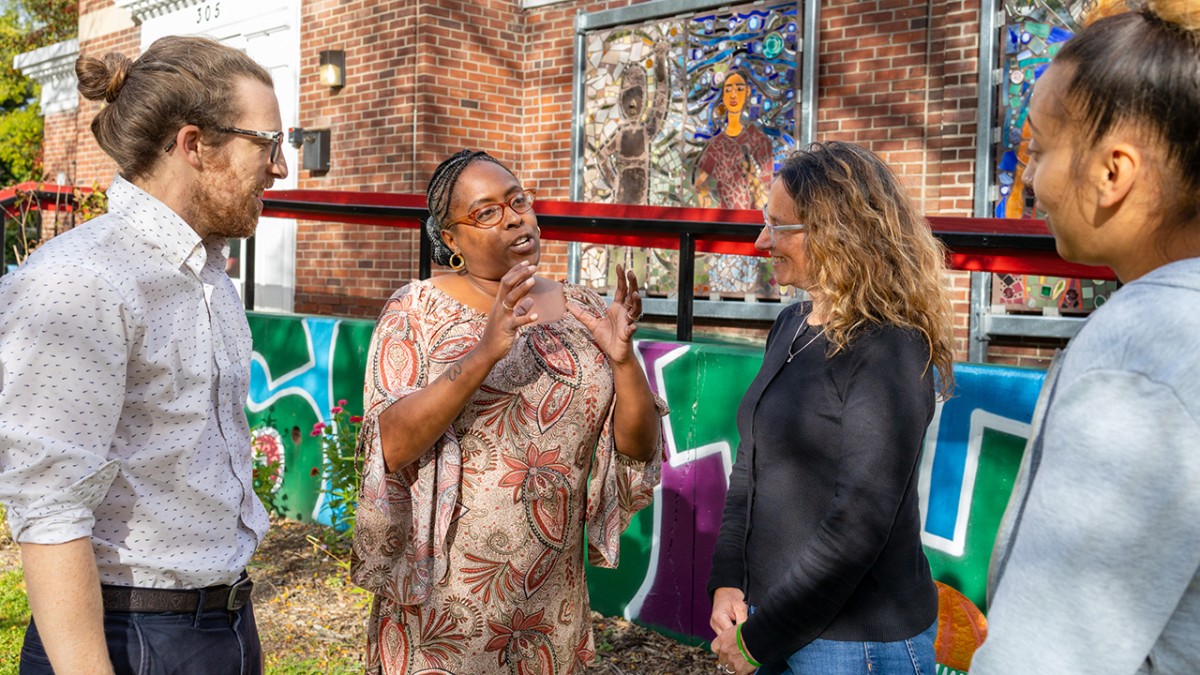
Residents of Southside, a historically Black community that lies along Six Mile Creek in Ithaca, now live in an area recently recategorized as a “special hazard flood zone” by the Federal Emergency Management Agency.
“When we get weeks of rain, people’s basements are flooding. If the creek overflows, it floods,” said Chavon Bunch, executive director of Southside Community Center, a neighborhood institution. “Long term, climate change is only getting worse.
“We are certainly looking in horror at our friends in Asheville and the surrounding areas as they are experiencing such devastation from flooding that could only get worse as the hurricanes keep coming.”
Now Southside is one of three communities partnering with Cornell researchers to create “resilience hubs” – existing facilities that support communities during disasters and crises caused by climate change, pandemics and other emergencies – and also create a replicable playbook for other New York state neighborhoods to follow.
Starting Oct. 17, the communities, with the help of the Cornell team, will brainstorm to define the scope of their respective hubs.
“These resilience hubs are driven by what the community wants, and driven by what hazards they experience, what vulnerabilities they have in their communities, what priorities they have,” said Alistair Hayden, assistant professor of practice in the Department of Public and Ecosystem Health in the College of Veterinary Medicine. He and Rebecca Morgenstern Brenner, senior lecturer in the Cornell Jeb E. Brooks School of Public Policy, are co-leading the project. Along with Southside, they’ll be collaborating which the St. Regis Mohawk Tribe near the U.S./Canada border and the Paleontological Research Institution in Ithaca to create their own hubs.
Brenner received the 2024 Kaplan Family Distinguished Faculty Fellowship in recognition of this work.


